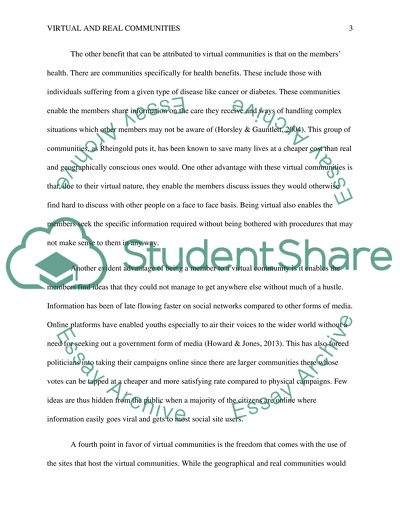Cite this document
(“Virtual and Real Communities Assignment Example | Topics and Well Written Essays - 1500 words”, n.d.)
Retrieved de https://studentshare.org/journalism-communication/1476874-1-evaluate-the-claim-that-with-the-advent-of-the-internet-communities-no-longer-need-to-be-located-in-any-particular-place
Retrieved de https://studentshare.org/journalism-communication/1476874-1-evaluate-the-claim-that-with-the-advent-of-the-internet-communities-no-longer-need-to-be-located-in-any-particular-place
(Virtual and Real Communities Assignment Example | Topics and Well Written Essays - 1500 Words)
https://studentshare.org/journalism-communication/1476874-1-evaluate-the-claim-that-with-the-advent-of-the-internet-communities-no-longer-need-to-be-located-in-any-particular-place.
https://studentshare.org/journalism-communication/1476874-1-evaluate-the-claim-that-with-the-advent-of-the-internet-communities-no-longer-need-to-be-located-in-any-particular-place.
“Virtual and Real Communities Assignment Example | Topics and Well Written Essays - 1500 Words”, n.d. https://studentshare.org/journalism-communication/1476874-1-evaluate-the-claim-that-with-the-advent-of-the-internet-communities-no-longer-need-to-be-located-in-any-particular-place.


